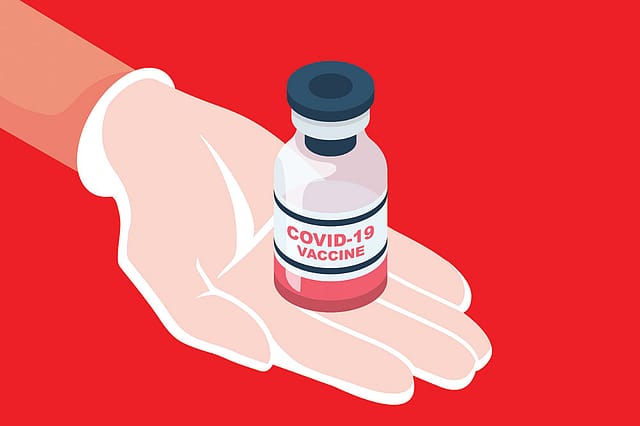Why the booster debate is not an urgent matter

The discussion whether administration of booster doses for Covid should be expanded beyond the 60 plus age category is caught amid contending arguments with some experts and commentators pointing to a rise in infections in some parts of the world.
But as things stand, the government is not in a hurry to take a decision on boosters or "precaution shots" even though it will be more than 10 months since some in the 45 plus age group received their second shots in May, 2021 (before the six week interval between doses was increased for Covishield).
The reasons lie in the success of Covishield and Covaxin vaccines in combating the Omicron wave and widespread immunity (anti-bodies) in the general population. Experience of the third wave shows boosters may not significantly enhance protection against symptomatic infection of a highly transmissible strain like Omicron.
Equally, chances of infection not leading to hospitalisation remain about the same though the third shot may help those with weaker immunity like the elderly.
The government may, in course of time, expand the eligibility for boosters though it is currently prioritising coverage of adolescents as schools return to normalcy. To understand the booster debate, one needs to consider how India fared in the third wave and the longer lasting immunity of its vaccines.
* The deadly second Delta wave took 49 days to peak at 4,14,188 cases, and another 68 days to subside (March 20-July 14, 2021). The Omicron wave took 18 days to peak at 3,47,254 cases and 24 to subside (Jan 4-February 14, 2022). The key difference? Partial vaccination at the start of Delta wave was 10.1% and 90.8% (60.5% fully vaccinated) when the Omicron wave commenced. When the second wave began, only 60 plus persons, health and frontline workers were eligible.
AIming High
20 Feb 2026 - Vol 04 | Issue 59
India joins the Artificial Intelligence revolution with gusto
* Between January 19 and March 15 this year, India reported a sharper decline in cases at 98 % as compared to the global average at 50.3%. India did better than many western countries which suffered due to higher vaccine hesitancy or waning immunity of their vaccines. India saw 2,52,038 deaths in the Delta wave and 27,118 in the Omicron surge (a majority unvaccinated).
* India's case trajectory during the Omicron wave was much less steep compared to the global curve and that of many countries like New Zealand, Vietnam and South Korea. This clearly established that vaccination is the key to containing Covid along with use of masks and social distancing.
* The tricky question about "fading" immunity is best answered by the current low levels of infections in India. Comparative studies are hard to come by but experts like surgeon and public health advocate Atul Gawande had, as early as November, 2021, said mRNA shots like Pfizer and Moderna are actually "three dose" vaccines.
* Even in countries that used both Pfizer and AstraZeneca (like England) the former showed a greater loss in vaccine effectiveness against symptomatic infection. The problem with mRNA shots is waning effectiveness within 4-6 months. In contrast, India's vaccines are delivering better immunity as the data on the Omicron wave shows, making the booster debate less relevant for now.
* Lastly, national sero-surveys show widespread presence of anti-bodies (even in children at a time when they were not vaccinated) and T cell memory begins to fight Covid infection in 4-5 hours. Boosters will happen no doubt, but the matter is not urgent.
